Cervivor Spirit Week gives our community a chance to bring some fun to an otherwise serious topic of cervical cancer awareness and prevention. As our Cervical Cancer Awareness Month Committee Co-Chair, Jenn Myers says, “It can be a heavy topic but we are the voices that need to do this work.”
We definitely had a ton of fun with everyone this week as we splashed social media with so much teal & white awareness! We love how many people took notice, shared their stories, and joined in on our cause.
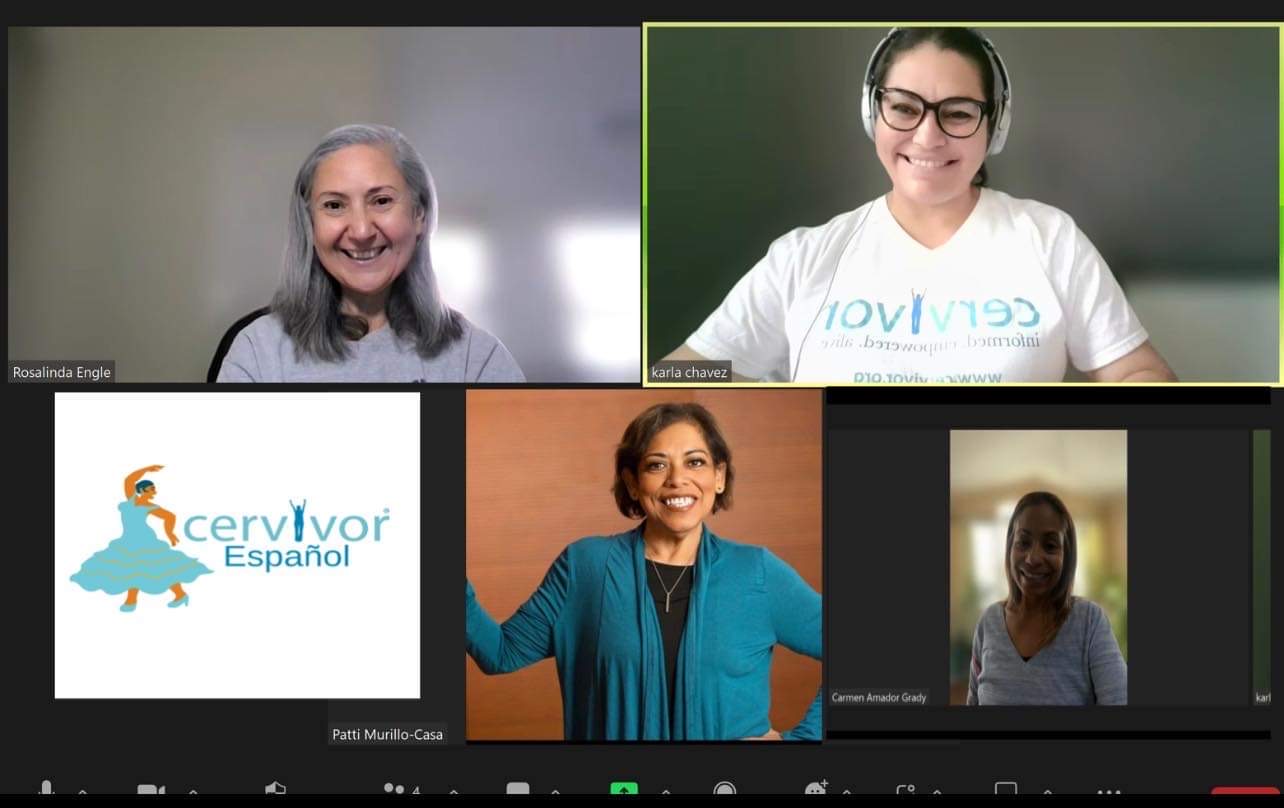

Cervivor Español unofficially kicked off the spirit week with a MeetUp on Saturday then we transitioned into the theme days starting on Sunday! Sports Day Sunday brought out all the sporty-Cervivors representing their favorite teams. Lisa Gopman reminded us to get our cervical cancer screening and vaccinate our kids against HPV all while showing off her Bengal pride.
There were so many great Movie Monday quotes from some classic Hollywood films. Kel Bel spent the weekend watching Harry Potter movies with her daughter while recovering from her hysterectomy and shared this Albus Dumbeldore line that hits her every time, “Happiness can be found even in the darkest of times, if one only remembers to turn on the light.” Mic drop.

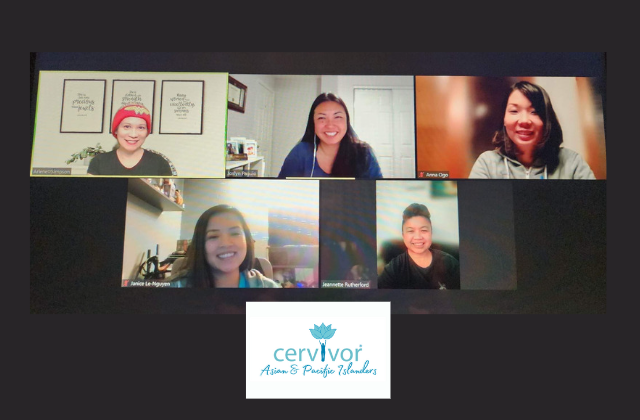
Our Cervivor Noir and Cervivor API groups kicked off their inaugural MeetUps to further our commitment to diversity, equity, and inclusion for anyone impacted by cervical cancer. There were stories shared so powerful and we cannot wait to see the work they all do in furthering our mission to end cervical cancer. (If you identify as Black, join Cervivor Noir and if you identify as Asian or Pacific Islander, join Cervivor API).
On Talk to Me Teal & White Tuesday we asked you what Cervivor means to you and here’s what you shared with us.
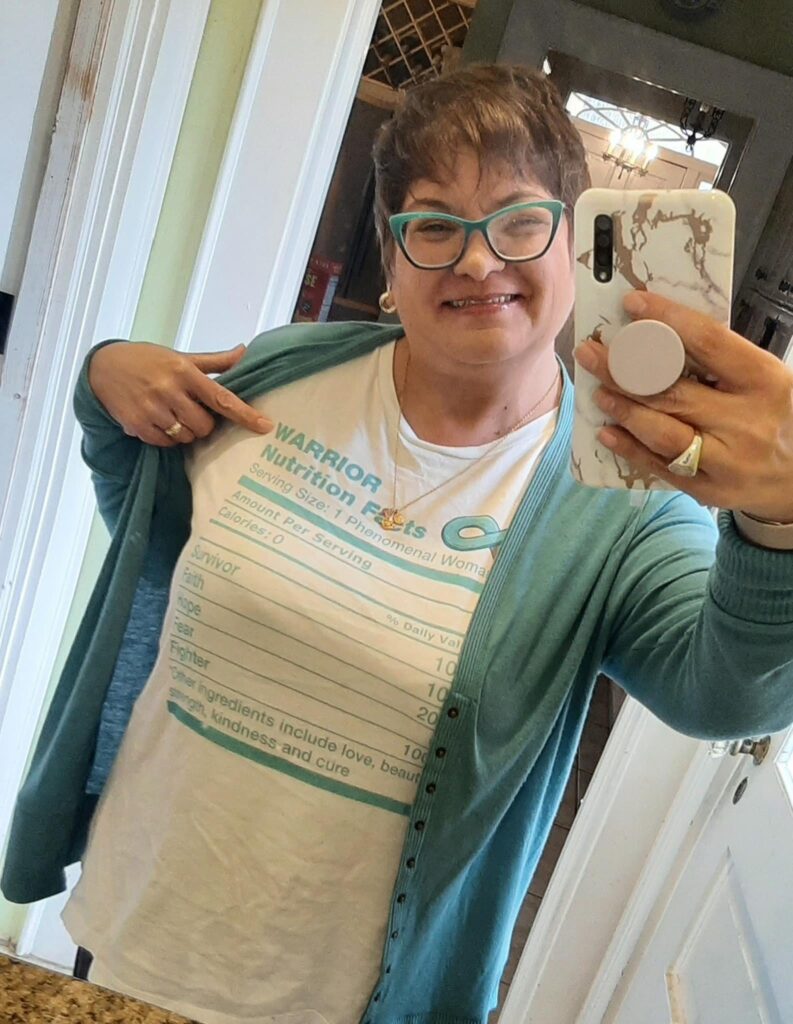
“Cervivor means no one fights alone.” ~ Christy
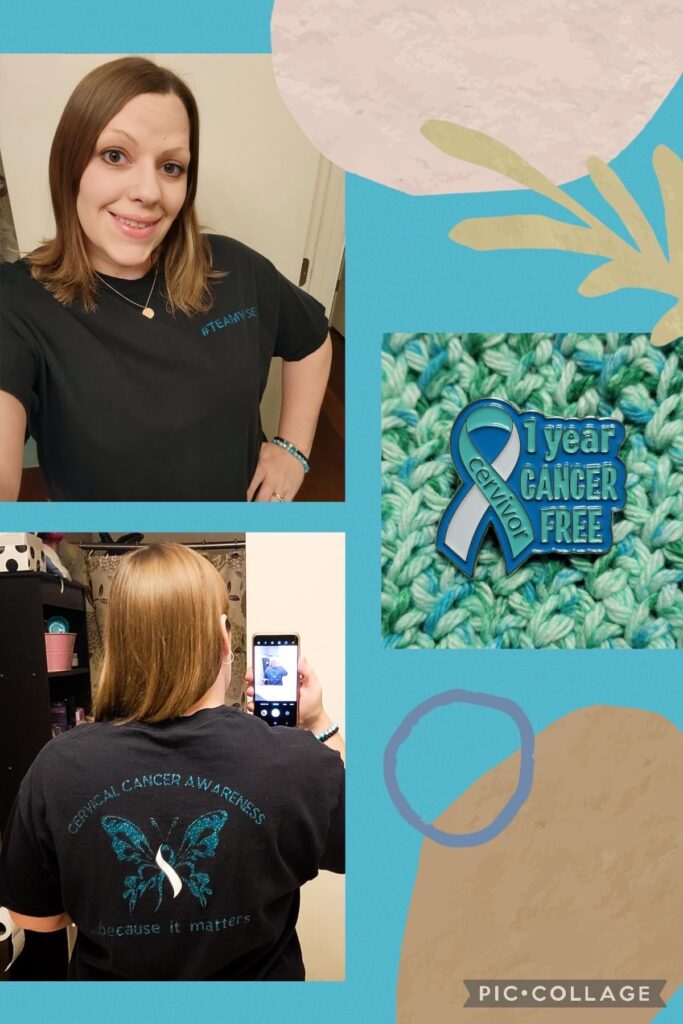
“Cervivor means sharing our stories and using our voices to spread awareness and to end cervical cancer and to let other women know they are not alone.” ~ Brooke
You gave us all the cozy vibes on Warm Up Wednesday and Cervivors were sharing pics snuggled under blankets and some with their pets. Joy shared the unconditional love from her cat and Arlene was living the Wonder Woman Snuggie life.

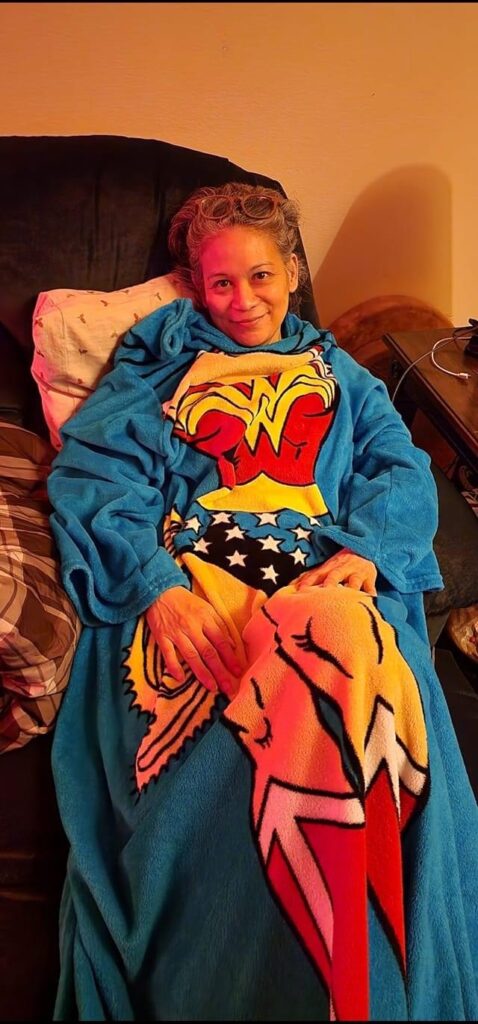
The favorite food of choice on Tasty Thursday seemed to be none other than… tacos! They really are the perfect food! Sharing our tasty treats helped us get ready for Saturday’s amazing session, Cooking with Tracy Citeroni, who demonstrated a versatile, healthy and delicious quinoa ‘risotto’. You can grab the recipe here to cook on your own!


We even kicked off our first-ever Cervivor Book Club meeting by discussing Brene Brown’s Daring Greatly! As we headed into our weekend, we asked you to share your happy places on TGIFriyay. Sand, surf, mountains, lakes, fireside, wilderness trails, and museum strolls hit the top of your lists for joy-inducing places we like to be.



And we ended this year’s spirit week with a favorite, Sock It To Cervical Cancer to bring out your favorite statement socks with a Cervivor flare!


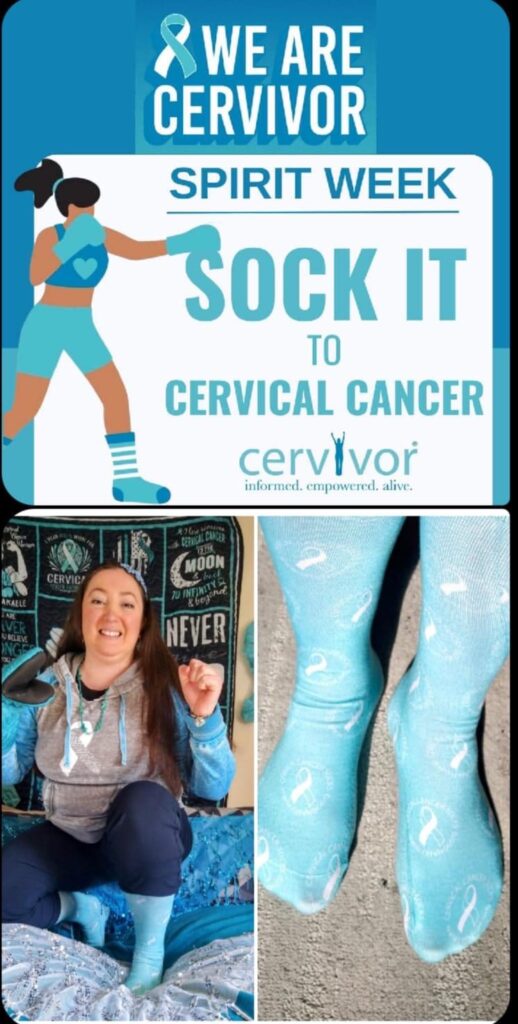
Through this time, we continued to honor the joy and Cervivor spark of our late Cervivor sister, Jodi Madsen. Cervivor Spirit Week was one of her favorite things from last year and she was a master in fun content creation and social media advocacy.
We hope this week has inspired you to continue these ways of advocating throughout the rest of 2023. It is truly incredible to see the power of our community and it’s a great reminder that we are Cervivor and we are unstoppable!